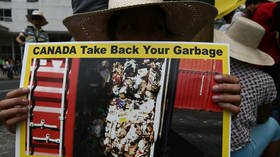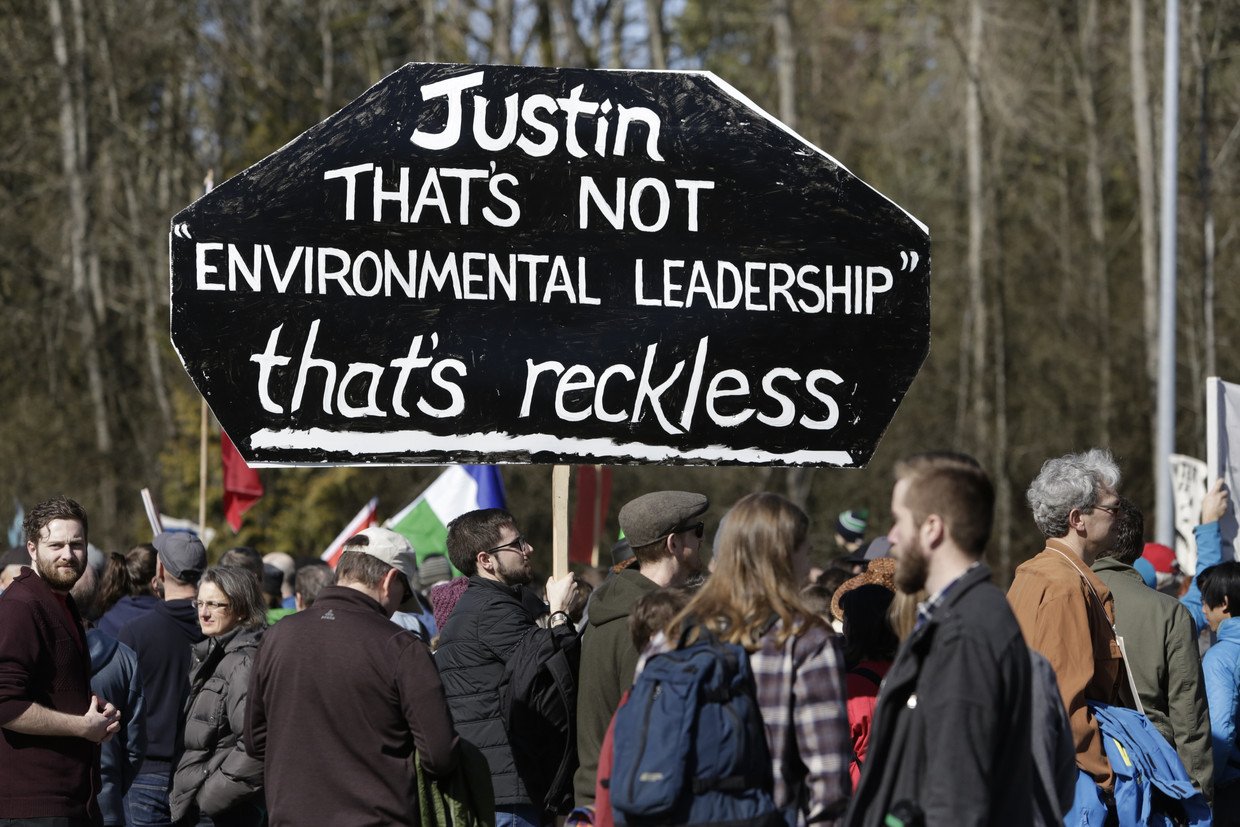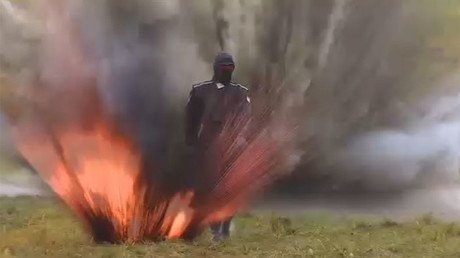Trudeau-Duterte fight over illegally-dumped Canadian trash highlights global problem

The global waste crisis was brought into sharp focus again after Philippines President Rodrigo Duterte threatened “war” with Canada over illegally dumped trash — an issue PM Justin Trudeau has repeatedly failed to address.
Duterte threatened to send back 103 shipping containers full of household waste which were illegally shipped to his country by Canada in 2013-2014. The eccentric leader railed against Trudeau, accusing Canada of treating the Philippines like a “dumpsite” and giving him “one week” to resolve the issue.
Also on rt.com Duterte threatens to ‘declare war’ on Canada over long-running trash disputeThe Canadian Embassy in Manila said on Wednesday it was “strongly committed” to solving the issue, but its actions have not matched its words. Five years after the dumping, some of the Canadian containers of trash are still rotting at Manila port, even after a Filipino court ordered 50 of them to be sent back in 2016, saying the country “should not be made a trash bin” for others.
No solution or no will?
The trash fight has put the spotlight on the United Nations Basel Convention, which regulates the movement of hazardous waste around the world. The convention itself has been ratified by all countries, except the US and Haiti.
An amendment to the convention introduced more than 20 years ago would ban all shipments of hazardous waste, including recyclables, from rich countries to developing nations which are already straining under the weight of their own trash problems.
The suspicion was that rich countries were sending general waste labelled as “recycling” to avoid Basel Convention rules. Indeed, the trash sent to Manila from Canada was labelled recycling, but inspectors found it to be filled with household garbage, rotting food, electronics and adult diapers.
Three quarters of parties to the convention have signed the amendment and only two more signatures are needed to adopt it, but Canada is one of 24 countries still refusing to do so, despite facing condemnation from environmental activists and bad publicity over the Philippines trash issue.
The groups said Canada would have an opportunity to “demonstrate its commitment” to the Basel treaty at an upcoming conference of its parties, which will take place in Geneva on April 29.
Trudeau hypocrisy?
A spokesperson for Canada’s environment agency told the Star newspaper in February that Trudeau’s government would not sign the amendment because it “believes that there are positive consequences to environmentally sound recycling and recovery operations.”
But that baffling statement does not make any sense, according to Kathleen Ruff, the founder of activist website rightoncanada.ca, who told the paper that Trudeau’s government, with all its liberal values and promises to be a responsible global citizen, should be championing such a move.
Berating Canada for refusing to sign the Basel amendment, Greenpeace Canada said the government’s actions were “deplorable.” Meanwhile, a coalition of other environmental groups sent an open letter to Trudeau in April, saying the Canadian waste in Manila was not just a “legal or technical” matter, but a “moral issue” which revealed the government’s level of respect for people living in developing countries. Trudeau’s government has not replied to that or previous letters sent by activists.

On the world stage, however, Trudeau has attempted to cast himself as a champion for the environment and promised to tackle climate change. In practice, however, Trudeau’s actions have been anything but environment and climate-friendly; approving new oil pipelines and gas plants, making underwhelming investments in renewables and green initiatives — and seemingly forgetting all about campaign promises to end fossil fuel subsidies.
In a New York Times article last year, Vancouver-based documentary filmmaker Damien Gillis described Trudeau as “not a climate crusader, but a pipeline pitchman who tells the world one thing while doing the opposite at home.”
Out of sight, out of mind?
The issue of global waste and what to do with it has taken on new urgency in the last couple of years after countries like China and India said they would stop taking waste from Western countries, forcing them to look elsewhere — and highlighting how unsustainable the practice of playing pass the parcel with waste really is.
While Westerners carefully separate their trash for recycling, what many don’t know, is that when it reaches its destination somewhere in the Global South, much of it ends up in hazardous trash heaps, the ocean, or is simply burned rather than recycled, due to a lack of proper infrastructure to deal with it.
Governments like Trudeau’s, professing liberal values and global responsibility and sustainability, are ideally positioned to champion changes in how the world deals with its waste, but, so far, they have simply dodged the issue.
Also on rt.com Global recycling crisis shows West can’t use poorer countries as dumping groundsLike this story? Share it with a friend!














